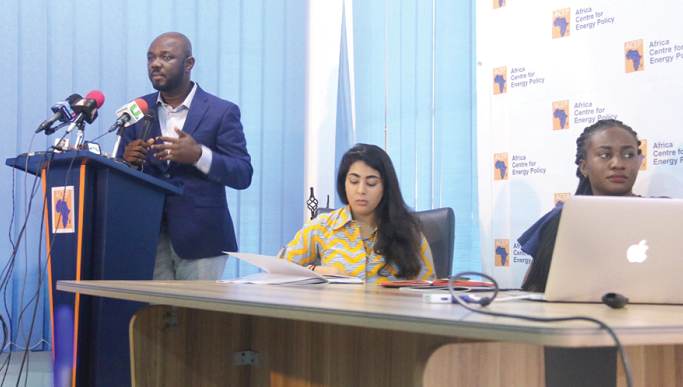
Ghana’s oil, gas potential highly underexplored — ACEP
The Africa Centre for Energy Policy (ACEP) has estimated that about 80 per cent of the country’s hydrocarbon potential remain unexploited despite the 14 active petroleum contracts that have been signed for oil production in the sector.
The Western Basin, where oil production is currently taking place in the Jubilee, Tweneboa-Enyera-Ntomme (TEN) and Sankofa Gye Nyame fields, constitutes about 20 per cent of the over 36,000 kilometre squared of offshore and 103,600km of onshore acreages.
As a result, there is the need for the country to attract the right investments to be able to exploit the resource to spur economic growth.
Read Also: Customs impounds 300 vehicles; Owners evaded duties
The Executive Director of the ACEP, Mr Benjamin Boakye, said notwithstanding the number of active contracts, Ghana’s hydrocarbon potential is still significantly underexplored.
“The busy areas of the Western Basin constitute about 20 per cent of the over 36,000km2 of offshore and 103,600km of onshore acreages. This indicates that a vast amount of the country’s basins requires increased activity and promotions to attract investment,” he stated.
He noted that the regulatory and governance regime, therefore, needs to carefully balance investment attraction with national fiscal take to attract the needed investment in the upstream sector.
Petroleum Agreements
The government has signed 14 active Petroleum Agreements (PAs) beyond the producing fields (Jubilee, TEN and Sankofa), with independent companies between 2006 and 2016.
Twelve (12) of the contracts are concentrated in the Western Basin, which is the most attractive of the country’s basins following the commercial discoveries and subsequent production of oil and gas in the area.
The contract areas to these active contracts include Central Tano Block, Expanded Shallow Water Tano Block, Deepwater Tano Block, South Deepwater Tano Block, Cape Three Points Deepwater Block, South West Tano Block, Shallow Water Cape Three Points and Ultra-Deepwater East Keta Block.
Inactive agreements
The petroleum contracts monitor, produced by ACEP, with support from the Strengthening Action against Corruption (STAAC)–Ghana, examined the 14 active PAs to establish the extent to which the companies were complying to the terms of the agreements.
Read Also: Govt initiates moves to merge VRA, Bui Power Authority
Per the findings of the report, most of the companies have failed to deliver on the terms of the contract largely as a result of their incapability to deliver on the terms.
“ACEP anticipated this based on the awarding process for these blocks. It became obvious after the discovery of oil in commercial quantities that the administrative process of awarding PAs was not fit for purpose and would lead to speculation,” the report said.
Some of the non-producing companies also benefited from the injunction placed on field operations in the disputed maritime boundary issue between Ghana and Cote d’Ivoire.
The report also mentioned political patronage and poor governance as part of the reasons why most of the companies were not performing.
“This failure is a direct function of non-enforcement of the contract terms by the government. At the same time, data on the performance of the companies have not been available to aid civil society and interested parties to track performance,” the report said.
Parliament’s role
Parliament has the constitutional power under Article 268 of the 1992 Constitution of Ghana to approve all resource contracts. This constitutional requirement has been complied with for all the active PAs.
The challenge, according to the petroleum contracts monitor report, was the rush in approving some of the PAs.
“The expectation is that after PAs have gone through executive approval, Parliament will provide independent and thorough review before they are ratified. However, the evidence rather suggests that Parliament could do better.
“Records available on 90 per cent of active contracts suggest that they were rushed through Parliament and ratified without extensive debate at the plenary on the report of the Committee on Mines and
Energy. Parliament waived its standing orders which requires that the committee’s reports be debated after 48 hours of being laid in the plenary,” the report said.
It, therefore, suggested that the weakness in Parliament’s assessment of contracts should be addressed to ensure efficient evaluation of executive decisions. — GB